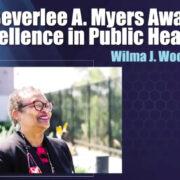FOLLOWING the March 22 bombings in Brussels, Belgium, spokesmen of the Philippine National Police and the Armed Forces of the Philippines immediately issued official statements to the effect that there were “no validated terrorist threats in Metro Manila.”
One of the major dailies promptly ran the headline, “No terror threats in Metro, says PNP,” and described the statement of the authorities as an “assurance.” In fact, there was no such assurance of the absence of a terrorist threat – simply the absence of reliable information about such an eventuality.
The only assurance given by the PNP was that its “security forces and the intelligence network are continuously monitoring and doing their jobs.”
That is the best we can expect from them. To those who scoff at the capabilities of our Philippine intelligence infrastructure, it helps to know that the quiet, unassuming clerk in your local city hall or barangay or the friendly assistant in that Philippine consulate abroad may, in fact, be an imbedded intelligence operative.
These folks may be taking note of any suspicious meetings or conversations you are engaged in. I am told that the days of Marcosian disappearances are over and that the likelihood of being picked up for subversive activities is remote – unless you live in the rural areas or are a very high profile activist. But please, don’t take my word for it.
Rodel Rodis, a lawyer friend in the San Francisco Bay Area and a vocal critic of abuses in past Philippine administrations, related an intriguing incident in a posting on social media. Someone had gone up to Rodel claiming to be a former intelligence agent assigned to tail Rodel and to find an opportunity to do him harm. According to Rodel, he didn’t think the fellow was worth taking seriously – until he read the man’s name in US media. The fellow was being deported for “human rights violations” as a Philippine undercover operative. The man had been telling the truth!
Indeed, I wouldn’t underestimate the capabilities of our intelligence community. When the PNP and the AFP say that their agents are on the job, that’s a better reassurance than when you drive up to the parking area of a mall in Metro Manila and the security guards go around your vehicle with a mirror attached to a pole, ostensibly checking its underbody for a hidden bomb. A determined terrorist with a whole armory of explosives would get past those security guards undetected.
So, how serious is the “terrorist threat” in the Philippines and in places like Metro Manila, in the wake of bombings in Paris, Brussels and other major cities?
For a US resident and a frequent traveler like me, quite frankly, it is as serious as the threat in any big city in America.
Perhaps, the only difference is that the intelligence community in America may be much better trained and concededly much better equipped to monitor suspicious activities among red-flagged foreigners, as well as permanent residents and citizens with “unusual backgrounds.”
I use the term “unusual” for lack of a more precise understanding of what the FBI and the Department of Homeland Security consider a red flag among the millions who populate the USA.
My own impression, however, is that the kind of near-seditious statements routinely made by local politicians, columnists and social media pundits that go in one ear and out the other of Philippine authorities, would raise serious concerns in the US. We have such an unbridled mass communications environment in the Philippines that the line between freedom of speech and licentiousness is often breached.
If you ask me, as a media person, I prefer the Philippine situation over the Big Brother monitoring in the US. A freer press, in spite of abuses, is preferable to the feeling that your every movement and every statement, your every email and every mobile phone call is being closely watched.
This is not to say that this is exactly what is happening in the US. But the possibility that it is, in fact, happening, already serves as a deterrent. It is pretty much the feeling you get when you encounter a full stop sign in the middle of nowhere in California. For some uncanny reason, when you choose to disregard the stop sign, a highway patrol officer suddenly appears. Believe me, it often happens.
And yet, in spite of such a high-tech intelligence environment, recent events in the US have shown that there is no airtight guarantee against a terrorist attack. The threat is not simply from foreign travelers with evil intent but also from home-grown “sleepers” who might suddenly be activated by their handlers and transformed into suicide bombers.
It is easy to say that the bombing at the Boston Marathon in April 2013 and the December 2015 terrorist attack in San Bernardino, California happened because of a “lapse in intelligence,” but the harsh truth is that there is no fail-safe protection against individuals who are prepared to give up their lives in the course of murdering innocent people.
If you are the kind who worries about these things, Google will tell you that “In the period from 2000 to 2007 (terrorist) attacks killed nearly 400 Filipino civilians and injured well over 1500 more, more casualties than caused by bombings and other attacks in Indonesia, Morocco, Spain, Turkey, or Britain during the same period.”
That would make the Philippines a “high risk” country. However, I am not aware of any new advisory issued to US citizens by the US embassy about travel to the Philippines, aside from one released in December last year. That advisory was about visiting critical areas in Mindanao. The same warnings have been given by the British and Australian governments to their nationals.
I frankly have no worries about traveling to Manila and even to Mindanao, in spite of media reports of ISIS recruitment and training activities. Of course, there is always the possibility of stray bullets or shrapnel unexpectedly coming my way, but, where I live near the city of Richmond in the San Francisco Bay Area, the possibility of getting caught in a crossfire between gang members is just as real – or just as remote.
I recall how my family worried about my planned trip to the Atlanta Olympics in July 1996, the day after a radical exploded a bomb at the Centennial Olympic Park, killing one person and injuring 111. I told my wife that after the bombing, the Olympic premises would be the safest place in America.
In sum, in a world where terrorism has become a daily threat, life must go on. Just cooperate with the strict airport security personnel, play along with the earnest efforts of the security guards at the malls and watch your language when you notice that quiet, unassuming clerk in city hall or at the Philippine consulate casting furtive glances at you. And, remember, vigilance and its corresponding inconveniences are the price we must pay for our security.
This may sound like a joke, but at any airport, I would think twice about saying “Hi” to my son-in-law. His name is Jack. ([email protected])





